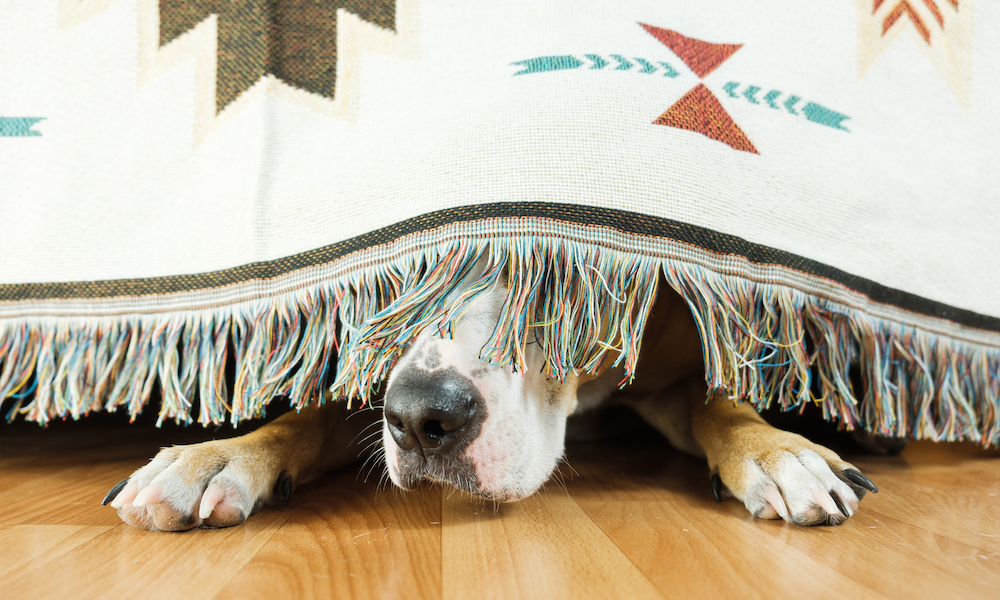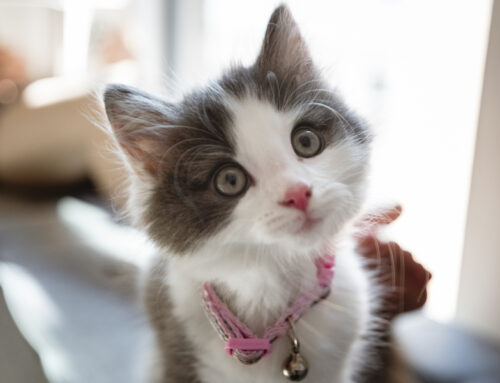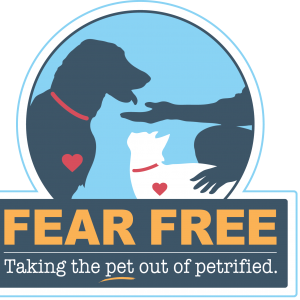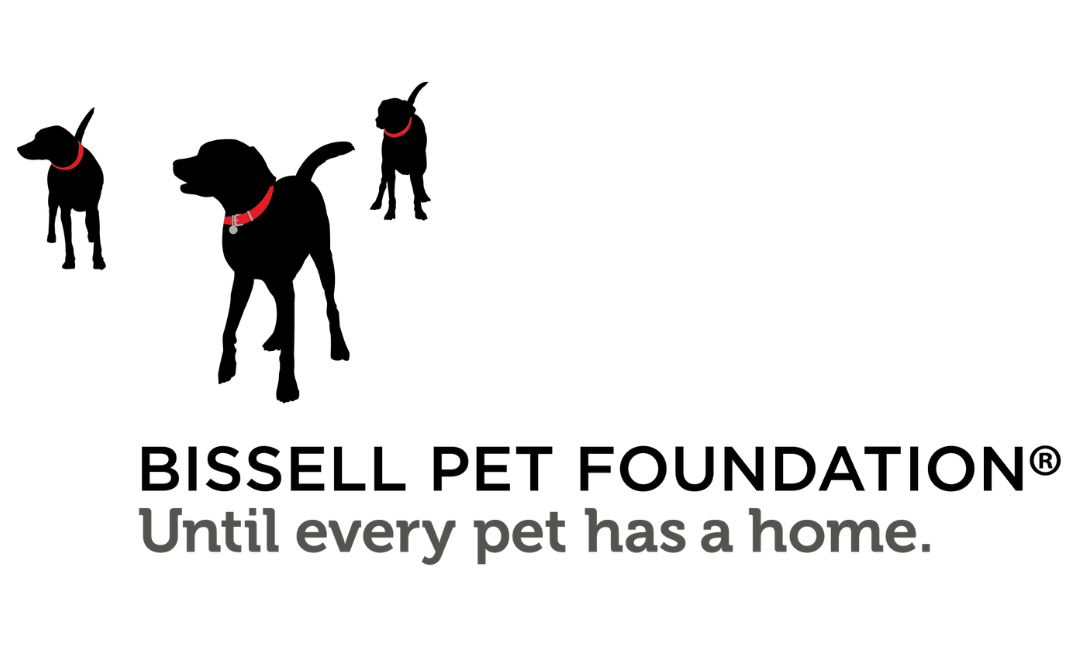Fireworks are Frightening: 12 Things You Can Do To Help Your Pet Cope
From a pet’s perspective, the Fourth of July is terrifying. Here they are just minding their own business, doing normal, everyday things, when suddenly there are huge booming noises and possibly lights flashing outside in the sky. This can strike terror into the hearts of the most confident and steady of pets. Their behavior may include uncontrollable shaking– I used to have a greyhound who shook so hard our couch inched across the tile floor. They may drool excessively– drooling was plentiful when I had both a noise-sensitive dog and cat. Some pets may whine, bark or meow, or yelp. Some may want to be as close to you as possible, while others may want to be left alone.
There are a few things that you can do to make this time easier for them. Most of them require advance preparation so start planning now:
1. Know When: Find out where and when your community’s fireworks will happen. Contact your neighborhood representatives or city hall to find out the dates and times of any events featuring fireworks and where personal fireworks are allowed– Pennsylvania enacted new fireworks legislation in 2018. In many neighborhoods, this information will be available on the Nextdoor App. In addition to finding out about public fireworks displays, be sure to ask if they will do any practice explosions before the day of the main event.
2. Visible Pet ID: More pets are lost on the 4thof July than any other day of the year– they get frightened and bolt. If you don’t normally keep your pets’ collars on them, put them on the morning of the fireworks and keep them on until a few hours after they are over. Make sure their collar has a visible ID attached well before the fireworks are expected to start. Check your pets’ tags now and make sure they are up to date and are still legible. While microchips are excellent identification tools for your pet, more pets are reunited with their owners because they were wearing visible, current, legible ID on their collars.
3. Medication: If you know from experience that your dogs’ reaction to fireworks is severe, talk to your veterinarian as soon as possible to see if an anxiety medication is appropriate.
4. Calming Products: If your pet’s anxiety during storms is minor or if you’re not sure how they will react, consider using Feliway spray on a bandana for your cat. For dogs, try an Adaptil diffuser, Adaptil spray on a bandana or an Adaptil collar.These are available in most major pet supply stores. Begin using the product a day or two before the fireworks. The spray needs to be reapplied every 4-5 hours.
5. Bathroom Break: Be sure to walk your dog or let them out into the yard with adult supervision for a potty opportunity an hour before the scheduled start of the fireworks. Do not leave them alone outside in the yard alone in case there are fire crackers or the show starts early. Consider keeping them leashed, even when in a fenced yard if you’re unsure how they may react.
6. Responsible Adult: Plan for a responsible adult to stay home with the pet both for the pet’s well-being, and because a terrified pet left alone may do damage to property, escape, or injure themselves.
7. Keep Pets Home: Do not take pets to fireworks shows. It is common for dogs to be so frightened by the fireworks that they break away and make a run for it. Some of those pets are never found.
8. Close the Curtains: Seeing the light show can be just as terrifying as hearing the noise for some animals. Plus closed curtains may help to block some of the sound.
9. White Noise: Play music or TV a little louder than normal during the evening of the fireworks to mask some of the sound for your pet. Turn on a fan or soothing noisemaker in other parts of the house. Practice this routine for a few days before you expect the shows to begin.
10. Let Them Choose: Make sure your pet has access to their crate if they are comfortable there, or a room where they feel safe, but let them decide whether they’d like to stay there. Likewise, let them decide whether to stay near you or go to a different place in the house.
11. Play…if they can: If your pet is concerned about the fireworks but still willing to play, engage him in some positive reinforcement training or play some fetch indoors. Help them associate fireworks with fun so maybe it won’t be so scary next year. If they can’t play, that’s okay too.
12. Act Natural: Be a calm presence for your pet. You want to comfort them if they need it, but do it in a way that shows them you’re not afraid and that everyone is safe. Being overly worried about their fearfulness can make it worse. They need you to be calm even though they are afraid.
Even with the best of preparations some animals will still be scared during the fireworks experience, but by doing the things above it is likely to be easier on them & you!
NEWSLETTER SIGN UP
Interested in more content like this? Subscribe & follow us to stay up-to-date.












